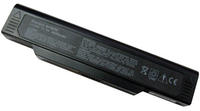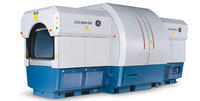-
DHS announces $98 million for advanced X-ray technologies
Next-generation advanced technology (AT) X-ray systems screen carry-on baggage for explosives or prohibited items at checkpoints; currently, TSA employs more than 940 AT X-ray units at airports nationwide; $98 million will fund the deployment of additional units
-
-
TSA: international trainees to be vetted only once annually
TSA says it will require foreign pilots to submit to a vetting process only once annually, regardless of the number of training events or variety of training organizations used; the change should reduce the bureaucratic burden on the pilots, training outfits, and the TSA itself
-
-
New upgrades will make full-body scanners less privacy-offensive
New software upgrade to full-body scanners would replace the images of a passenger’s naked body with an avatar and alert authorities to a potential hidden threat, eliminating the need to keep an employee in a remote room
-
-
Lasers will protect helicopters from heat-seeking missiles
A Michigan company using off-the-shelf telecommunications fiber optics to develop rugged and portable mid-infrared supercontinuum lasers that could blind heat-seeking weapons from a distance of 1.8 miles away; the technology will be used to protect combat helicopters from heat-seeking missiles
-
-
Pakistani military delegation cancels U.S. talks over stringent security checks
A high-level Pakistani military delegation has cancelled a visit to the United States after members of an earlier delegation, which came to the United States to visit the U.S. military’s Central Command (CENTCOM), were subjected to stringent — the Pakistanis say “unwarranted” — security checks at Dulles International Airport
-
-
FAA: Nigeria meets Category 1 aviation safety rating
FAA announces that Nigeria is now in compliance with international safety standards set by the International Civil Aviation Organization (ICAO); with the IASA Category 1 rating, Nigerian air carriers may now apply to operate to the United States with their own aircraft
-
-
Skeletal scans could be newest screening technique
The adult skeleton has 206 bones; size, shape, density, and joint structure make each skeleton slightly different; throw in an extra lumbar vertebrae or extra rib — which some people have — as well as previously broken bones, implants, screws, and other identifying characteristics, and the signatures become even more individual
-
-
New airline safety worry: lithium-ion batteries

In January, the U.S. Department of Transportation (DOT) proposed stricter rules for companies that ship lithium batteries in cargo holds; lithium-battery experts, security analysts, and flight attendants wonder whether stricter rules are also needed in airline passenger cabins to prevent fires or worse: a possible attempt by a terrorist to bring down a plane by rigging a large number of batteries together to start a fire; right now, there is no limit to how many small lithium-ion batteries a passenger can carry aboard a flight; a materials scientist at the Argonne National Laboratory says that even a single cellphone battery could start a fire: “A smart terrorist can start fires with these things…. Any energy-storage device packs a lot of energy in a small space and can be used for good or evil”
-
-
The last romantic: student who breached airport security to kiss girlfriend fined $3,000
A Rutgers University graduate student who breached Newark Airport’s security to kiss his girlfriend is fined $3,000 by TSA; the breach, committed after a guard left his post, shut down Terminal C for six hours, stranded 16,000 passengers, delayed 100 flights, and canceled 27 others
-
-
3D, interactive X-ray to offer dramatic improvement in security scans
The latest X-ray scanners can glean information about the atomic or molecular weight of a substance, and so help distinguish between materials, but the results are crude; the best they can manage is to show metal objects in one color, organic materials in another, and everything else in a third color; a new technique — called kinetic depth effect X-ray imaging, or KDEX — builds up a 3D image of the object which can be rotated and viewed from a wide range of angles
-
-
New baggage screening system from Morpho Detection evaluated

Unlike most baggage-screening systems that create two-dimensional images of objects inside luggage, the CTX 9800 DSi scanners from Morpho Detection create three-dimensional images that can be digitally manipulated by personnel when a bag is deemed to be suspicious; the machines also use advanced software to detect suspicious items; Mineta San Jose International Airport once used 28 machines to process 1,800 bags an hour, but the new system will be able to process the same number of bags using eight machines and require fewer employees to supervise the process; the technology reduces reliance on human observation and interaction with the bags; for the majority of bags, employee contact is only required when a piece of luggage is placed on or taken off the conveyor belt
-
-
100 percent air-cargo screening is going smoothly -- so far
On 1 August a law mandating 100 percent screening of cargo transported on passenger aircraft took effect; the shipping industry says that, so far, are off to a good start; experts point out that August is relatively slow shipping month, and that the real test will come in mid-September, when the busy air cargo shipping season begins
-
-
BioStorage approved for cargo pre-screens
Shipments of pharmaceutical and biotech materials typically include temperature- and time-sensitive materials — but under the Implementing Recommendations of the 9/11 Commission Act, which took effect 1 August, all cargo transported on passenger aircraft is required to be screened at the piece level, prior to being transported; TSA approves Indiana-based BioStorage Technologies to pre-screen its shipments to avoid airport delays
-
-
TSA denies Unisys' ITIP contract bid, reaffirms selection of CSC
Unisys filed a protest with the Government Accountability Office (GAO) over the awarding the TSA’s Information Technology Infrastructure Program (ITIP) contract to Computer Sciences Corp. (CSC); the ITIP award has been worth over $1 billion to Unisys and going forward was valued at $500 million over five years to run TSA’s information technology infrastructure; the 2-year long battle is now over, with TSA denying Unisys’s bid and saying CSC will restart the contract 1 September
-
-
Donna Shalala detained and interrogated for hours at Israeli airport
Donna Shalala, president of the University of Miami and secretary of health and human services in the Clinton administration, is detained for two-and-a-half hours by Israeli security personnel at Tel Aviv airport, “during which she was asked invasive and humiliating personal questions,” according to an Israeli daily newspaper; Shalala, 69, is of Lebanese decent
-
More headlines
The long view
New Technology is Keeping the Skies Safe
DHS S&T Baggage, Cargo, and People Screening (BCP) Program develops state-of-the-art screening solutions to help secure airspace, communities, and borders
